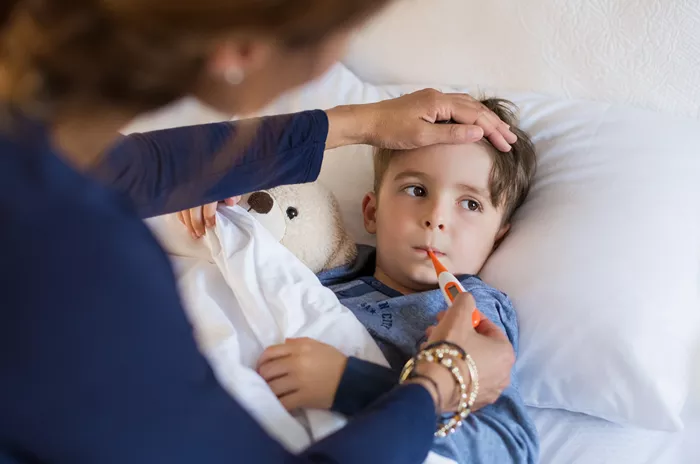In a concerning trend, whooping cough (pertussis) infections in the United States have surged dramatically, with the Centers for Disease Control and Prevention (CDC) reporting over 17,600 cases as of October 5th—an increase of more than 340% compared to the same period last year, which saw 3,962 cases. This uptick in infections has raised alarms among health experts, as outbreaks could threaten vulnerable populations, especially infants.
Before the COVID-19 pandemic, the number of pertussis cases typically exceeded 10,000 annually, peaking at 18,600 in 2019. However, following the pandemic, reported cases plummeted to just 2,100 in 2021, likely due to heightened health protocols such as mask-wearing and social distancing. But with the easing of these measures, cases have skyrocketed again, leading experts to urge vaccination and booster doses.
Dr. Marc Siegel, a senior medical analyst for Fox News and clinical professor of medicine at NYU Langone Medical Center, offers insight into the rising numbers: “As our immune systems are exposed to viruses and bacteria we haven’t encountered in years, our response is slower. The recent surge is likely linked to this delayed immune response.”
Health professionals also point to the role of low vaccination rates in some regions. “Pertussis is highly contagious, and when vaccination coverage weakens, it spreads more easily,” explained Katy Dubinsky, a pharmacist and CEO of Vitalize, a private supplement company. “This is why maintaining herd immunity is critical.”
The states with the highest number of pertussis cases so far this year are:
1.Pennsylvania – 2,209 cases
2.New York – 1,228 cases
3.Illinois – 1,153 cases
4.California – 1,123 cases
5.Wisconsin – 903 cases
6.Washington – 844 cases
7.Ohio – 814 cases
8.Texas – 676 cases
9.Oregon – 546 cases
10.Arizona – 491 cases
Whooping cough is a contagious respiratory infection known for its severe coughing fits that end with a distinctive “whooping” sound as the patient inhales. Initial symptoms often mimic a common cold—runny nose, nasal congestion, fever, and watery eyes. However, as the infection progresses, the coughing can become violent, leading to difficulty breathing, vomiting, and even hospitalization, particularly in infants.
“Whooping cough is especially dangerous for babies, as their airways are smaller and less developed. Even a mild case of the illness can cause serious complications,” cautioned Dr. Siegel. Infants who are too young to be vaccinated are the most vulnerable, making it crucial for caregivers and those around them to stay up to date on vaccinations.
The DTaP vaccine, which protects against tetanus, diphtheria, and pertussis, is routinely given to children. For adolescents and adults, the Tdap vaccine is recommended to boost immunity against pertussis and prevent its spread. Dr. Siegel emphasized, “The vaccine works and provides protection for three to five years. Everyone should be current on their booster shots to help protect those who are most at risk.”
Pregnant women are advised to receive the Tdap vaccine during each pregnancy to protect their newborns until they are old enough to receive their own shots.
Because the symptoms of pertussis can mimic other respiratory infections, the diagnosis is often missed, especially in adults. If you suspect someone—especially a young child or infant—has whooping cough, seeking medical attention promptly is vital. Early intervention with antibiotics like doxycycline or azithromycin can help reduce the severity and prevent further transmission.
“The condition can quickly escalate, leading to severe coughing spells that may impair breathing, vomiting, and other life-threatening complications, particularly in infants,” said Dubinsky.
With whooping cough cases on the rise, experts are urging the public to prioritize their health and the health of their communities by ensuring they are up to date on vaccinations. As Dr. Siegel noted, “Vaccination is the best tool we have to control this contagious disease and protect those who are most vulnerable.”
For more information on whooping cough, its symptoms, and vaccination schedules, visit the CDC’s website or consult with your healthcare provider.
Read more:
Natural Ways to Cure Cough and Cold in Infants: A How-To Guide
Caring for Your Newborn: A Guide to Manage Coughs & Colds
What to Give a 3-Month-Old for a Cough: A Parent’s Guide


